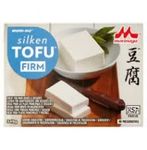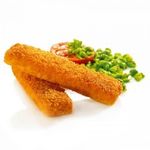Increasing Your Protein Intake whilst on Haemodialysis - Kidney Nutrition
←
→
Page content transcription
If your browser does not render page correctly, please read the page content below
Why is Protein important?
Protein is an important nutrient in our bodies, helping to build and repair our muscles.
During illness, your body needs more protein and if your protein intake is low, your
body will take this protein from your muscles. It is important to keep your muscles
strong to help you with daily tasks and to reduce the risk of falls.
Protein is also found in your blood. This form of protein is called albumin. It delivers
nutrients, vitamins, minerals and energy to the rest of your body and helps to fight
infection.
Why do I need more protein on dialysis?
People on dialysis need to eat more protein. This is because some albumin is lost
during the dialysis process. It has been estimated that you can lose around 7-8g of
protein during one session of haemodialysis. This means it is even more important to
have protein rich foods on dialysis days.
Your blood protein (albumin) can also be lowered by infection, inflammation, or recent
hospitalisation. Although these are not directly related to food, you are more likely to
eat less when you are not feeling well.
Eating enough protein can help you live longer on dialysis.
Generally 1.1-1.2g protein per kg body weight is advised per day.
Requirements can differ for those with low/high body mass index (BMI), broken skin and illness.What are good sources of dietary protein?
Meat and fish
ü Fresh is best! (lower in salt and phosphate)
ü Consider sustainable fish
Dairy foods
ü Milk – cow’s, goat and soya milk contain 7-8g protein in every 200ml glass.
Almond, hazelnut, oat and coconut milk are very low in protein
ü Yoghurt – look for a yoghurt containing more than 7g protein per 100ml e.g.
Skyr and Liberté
ü Cheese – avoid processed cheese
ü Milk puddings e.g. rice, semolina, tapioca
Vegetarian sources
ü Eggs
ü Pulses e.g. lentils (incl. dahl), chickpeas (incl. hummus)
ü Soya e.g. tofu, miso, tempeh
ü Quorn
ü Nuts and seeds
ü Cereals and grains e.g. oats, barley, rice, quinoa
Food Labels
If you are buying a convenience meal, sandwich or snack it can be helpful to look at
food labels to identify how much protein it contains. If this is a main meal it should
provide at least 20g of protein, ideally more.
The protein content on food
labels will help you calculate
your protein intake per portion
Convenience meals such as Wiltshire Farm Foods, Oakhouse Foods or supermarket
own brand can be a good option to ensure you have a main meal. It is important to
look at the food label to choose meals with a higher protein contentExamples of food portions containing 30-35g of protein
1 small chicken breast 2 slices of roast meat 1 salmon steak
Quorn bolognaise and Omelette or frittata
140g tuna
pasta (large portion) with cheese
Tip:
• It can be difficult for a vegetarian to get this much protein in a meal. Try combining
protein sources such as eggs and cheese or vegetable protein with a large amount
of pasta.
Examples of food portions containing 12-20g of protein
100g Quorn mince 80g tofu 50g cheddar Large slice of quiche
Large bowl of porridge Pot of high
50g meat 1 chicken kiev made with milk protein yoghurt
Tip:
• Even having a small amount of meat 50g (2oz) can give you as much as 15g of protein.
• Cereals like Cornflakes or Rice Krispies contain as little as 5g of protein. While a
medium/large bowel of porridge can contain 17g protein!Examples of food portions containing 7-9g of protein
150g baked beans 100g lentils ½ pot (100g) hummus ½ can (120g) chickpeas
250ml milk
1 large egg 2 fish fingers ½ can (100g) rice pudding
1 large meat/vegetarian 4 slices of wafer 8 slices of chorizo Bowl of pasta
sausage (50g) thin ham/chicken
Tip:
• Having good portions of carbohydrate such as pasta, egg noodles or quinoa can
help to increase the protein content of your meal.
• It can be difficult to meet your protein needs if you only eat processed sources of
meats when possible try to have fresh meat and fish.
Eating more protein on a budget
ü Choose meat from the reduced section
ü Choose cheaper cuts of meat such as braising steak, shin or
shoulder. Slow cooking these meats gives a great tasting meal
at a lower cost
ü The cheapest way to buy chicken is to buy a whole chicken
ü Consider replacing some of your meat in casseroles / stews with lentils and
beans or add them to your current recipe to bulk it out
ü Cook extra portions for your evening meal so you can have the leftovers for
lunch the next day or consider freezing leftovers for another day.High Protein Snack Ideas
• Chicken Drumstick = 20g protein
• Cheese on crackers x 2 = 10g protein
• Chicken bites = 20g protein
• Prawn snack = 11g protein
• Boiled egg = 8g protein
• Falafel and hummus = 9g protein
• Skyr yoghurt = 20g protein
Tip:
• Biscuits, crisps and sweets contain very little protein. Consider swapping for one
of the above to help meet your protein needs.
Suggestions to Increase Your Protein Intake
2 Slices of Toast 2 eggs
(5g of protein) Add (20g of protein)
A bowl of Soup Sandwich with cheese, prawn,
(Having a good protein source at each meal can really help you to
meet your protein needs.
Nutritional Supplements
Eating enough protein can be difficult. Nutritional supplements
can help in the shorter and sometimes longer term to help you
meet your requirements. Your renal dietitian can advise on the
prescribing of suitable supplements.
Supplements come in a range of styles and flavours and can provide up to
20g protein in a limited volume. They can be taken solely or mixed into
food & drink.
Commercial Protein Products
Commercial protein products are generally not recommended as they can be high
in potassium and/or phosphate. Speak to your Dietitian if you have a query about a
particular product.
Final Tips
• Try to have a good protein source at every meal
• Always have a high-protein snack like tuna, cheese on crackers or a yoghurt
on hand
• Try to get into the habit of checking food labels to help you choose products
with the most protein
• Consider a protein supplement if you are unable to increase your dietary
protein intake
• Take your phosphate binders as directed. Where there is protein there may
also be phosphate!
• Your albumin is lowered when you have too much fluid, so always keep
within your recommended fluid allowanceNote on Phosphate: If you have difficulty controlling your phosphate on phosphate
binders then it is advised you keep within your dairy and egg allowances and avoid
processed meat where possible. Speak to your Dietitian if you have any concerns.
Note on Potassium: If you have difficulty controlling your potassium then speak to
your Dietitian regarding the most appropriate protein choices.
Produced by: Somerset Community Renal Dietitians
Main Office: 01278 447407
Email: RenalDietitians@sompar.nhs.uk
Your Action Plan/Notes:You can also read



























































